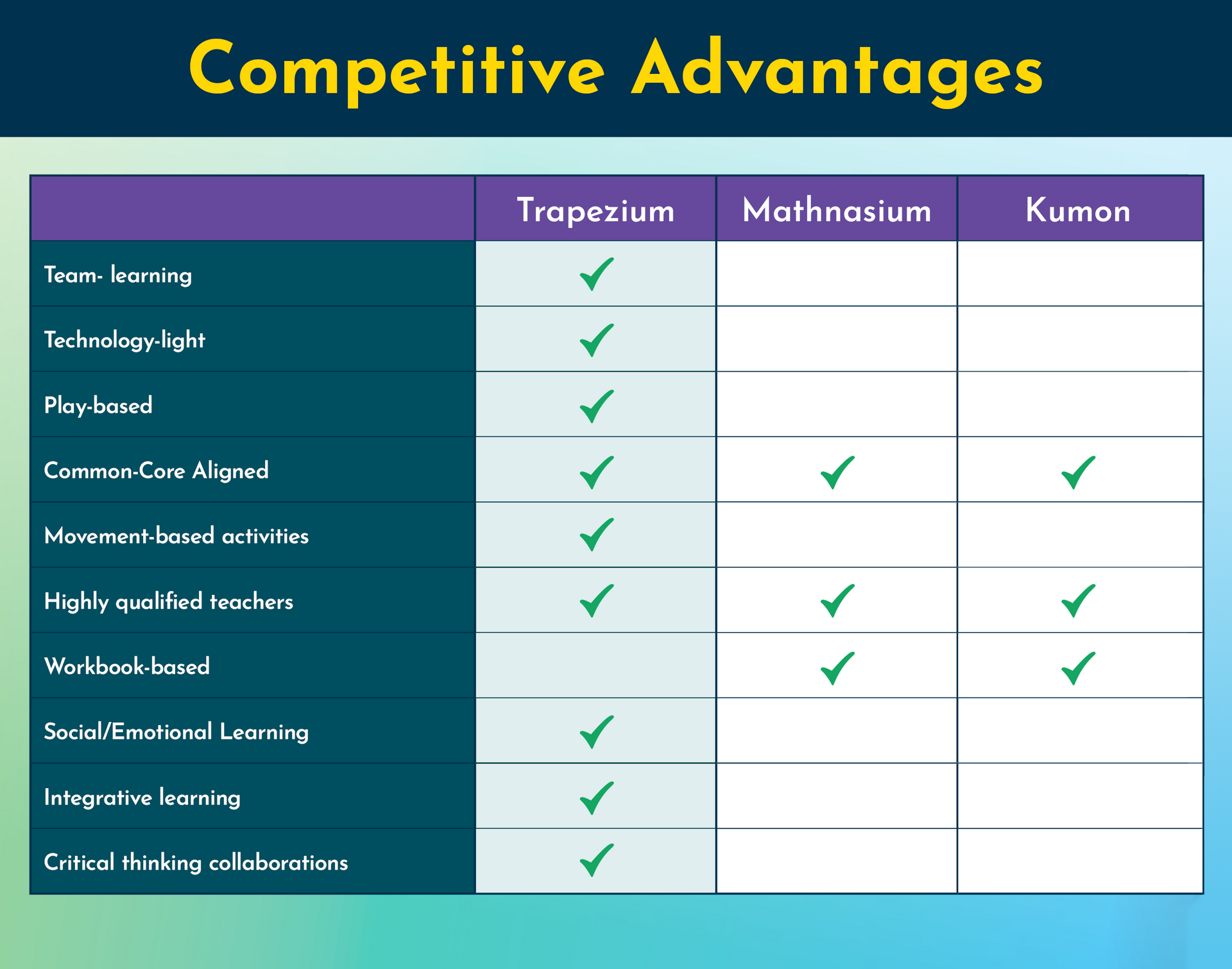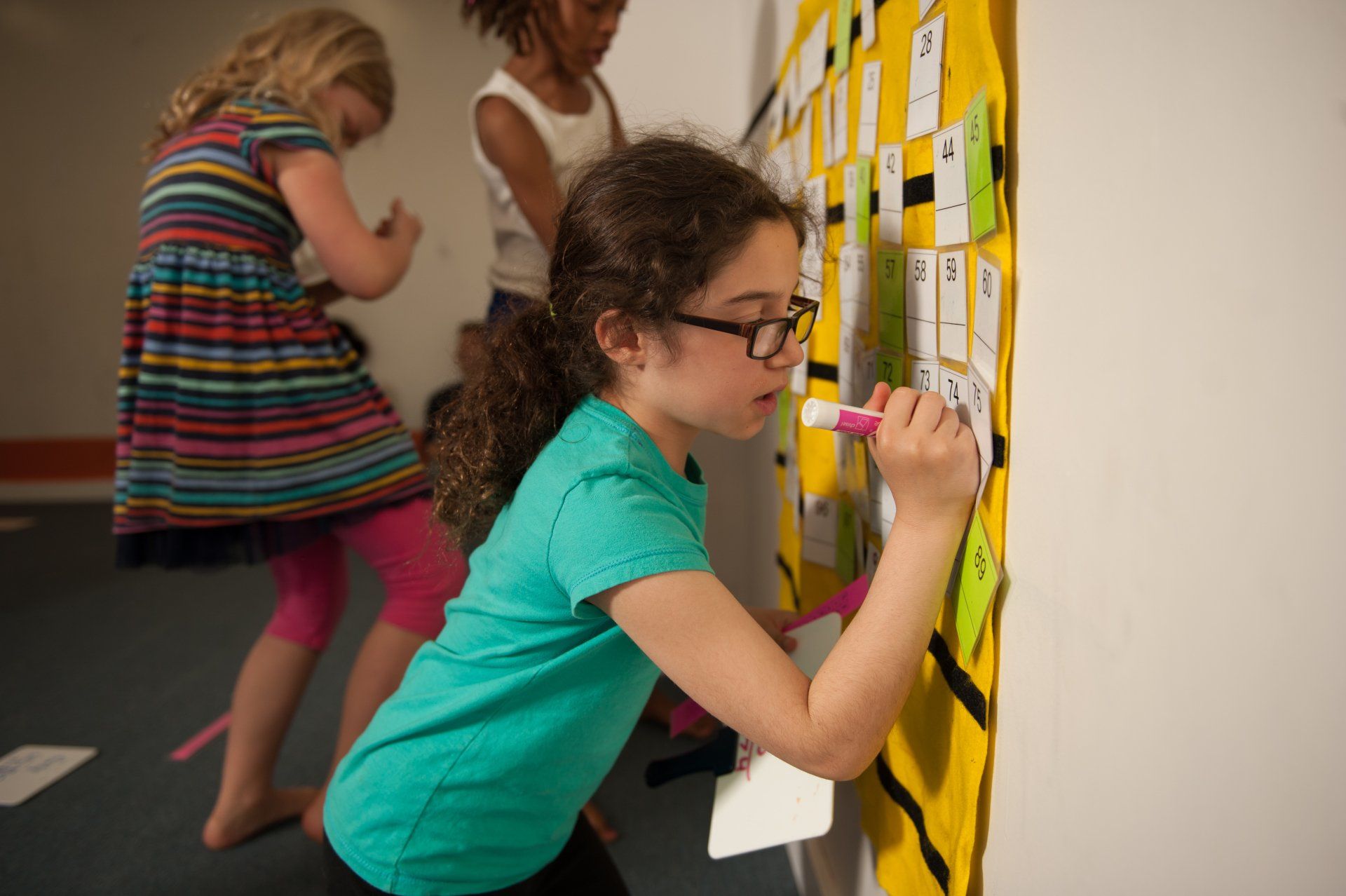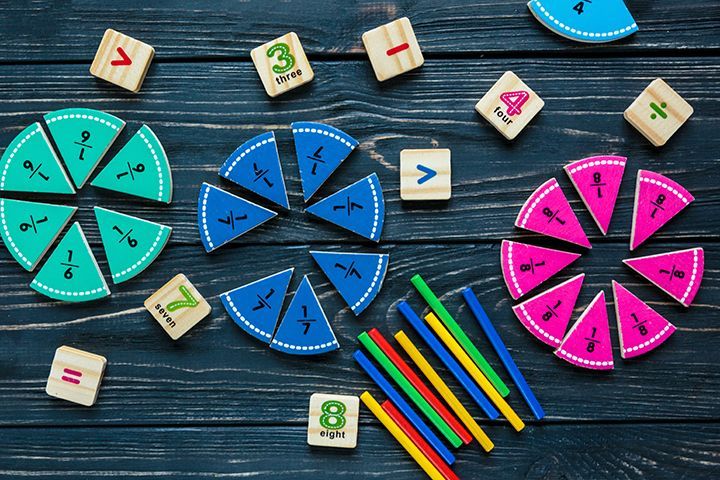by Angela McIver, PhD
My career has been motivated by curiosity about how children learn math. I have interviewed hundreds of students across the country from kindergarten to college about their experiences learning math. Through my research I found that few students are provided the rigor and repetition necessary to develop strong math foundations. I also found that when rigor is provided, it is neither engaging nor confidence-building for students.
As a result, many parents look for alternative and supplementary math programming. When surveying the options for supporting young math learners outside of school, many parents and families come across well known and established math tutoring companies; Mathnasium and Kumon. While these programs have credibility and work for some students, their approach replicates the teaching style used by most schools, using worksheets and workbooks. As a parent who has signed my children up for both of the programs, I have found that neither of these alternatives addressed the root causes of their challenges, nor did they provide excitement or engagement around math.
I started Trapezium Math Club out of my home in 2009 because my children’s needs were not being met by their elementary school math curriculum, or support from other math enrichment programs like Kumon and Mathnasium. I noticed the way that math caused my children stress and confusion, and I knew they were not alone. When we founded Trapezium Math Club in 2009 our goal was to provide programming to students that was highly engaging, confidence building and prepared students for middle school math and beyond. Our curriculum, like Kumon and Mathnasium, aligns with common core standards, so that students see a direct correlation between what they are learning with Trapezium and what they are learning in school. Unlike Kumon and Mathnasium we take worksheets out of the equation and engage students in developmentally appropriate ways: through games, movement and hands-on activities. We believe in cultivating an entirely new approach to working with young students in math that engages them creatively, socially, physically and intellectually.
Our highly qualified Math Club Leaders are trained to facilitate curriculum that has been developed, and kid tested, over the last 15 years. The curriculum is designed to establish strong math foundations through scaffolding and repetition. Club Leaders are also trained to work with students on social, emotional learning and building positive and trusting relationships with their students. Math Club is an hour long, virtual, weekly meet up with groups of up to 4 students and 1 Club Leader. Students are grouped based on proficiency. Accompanying the club is a Math Club Kit, which has manipulatives that are used throughout the club.
Our approach at Trapezium radically transforms the way that young math learners engage with math, fostering a positive association with math, cultivating confidence and building durable relationships.












